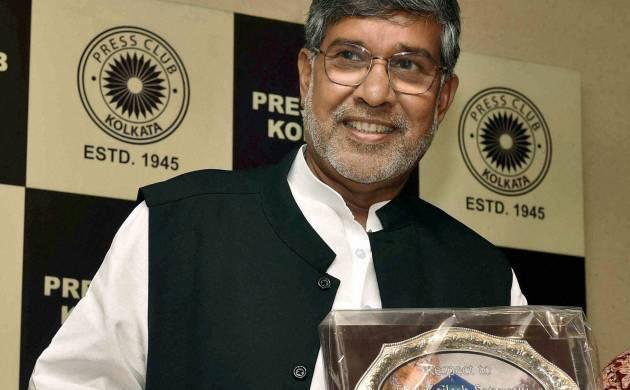Hybrids exempt from Britain’s petrol and diesel car ban
Only electrified cars and vans will be sold from fresh in the UK from 2040, the government has announced in a paper published by the Department for Environment, Food and Rural Affairs (DEFRA).
The stir is part of a £2.7bn blueprint for tackling air pollution, and is consistent with the Government’s election manifesto. The ban won’t affect cars with hybrid and plug-in hybrid drivetrains, but rather “conventional petrol and diesel cars”.
The paper also mentions further possible exemptions for combustion engine cars, once air quality levels improve to a satisfactory point. It says “Local authorities should bear in mind such access limitations would only be necessary for a limited period and should be lifted once legal compliance is achieved and there is no risk of legal thresholds being breached again”.
A targeted scrappage scheme for older diesel vehicles is also being considered, but it won’t be ratified until after a consultation period.
In two thousand seventeen around 4% of all fresh car sales have been plug-in hybrids or fully electrified, with around a quarter of that figure sales of fully electrical cars. Current predictions by charging point rock hard Chargemaster suggest that the very first one million plug-in hybrid or electrical car will be on the road by 2022, by which point electrified car sales will account for around 10% of all fresh car sales. There are around 40m cars on UK roads today.
Society of Motor Manufacturers & Traders CEO Mike Hawes cautioned that the automotive sector could be ‘undermined’ if the industry was not given enough time to adapt to the fresh policy.
“Much depends on the cost of these fresh technologies and how willing consumers are to adopt battery, ass-plug in hybrid and hydrogen cars,” said Hawes.
“Presently request for alternatively-fuelled vehicles is growing but still at a very low level as consumers have concern over affordability, range and charging points.
“Outright bans risk undermining the current market for fresh cars and our sector which supports over 800,000 jobs across the UK so the industry instead wants a positive treatment which gives consumers incentives to purchase these cars.”
Additionally, a £255 million fund is expected to be set up to aid councils to clean up the most polluted inner-city areas.
Potential methods of tackling local issues include introducing charging for high-polluting vehicles through to the removal of speed humps and traffic calming measures has also been highlighted as a possible improvement. Money will also be made available to retro-fit pollution-reducing technology to public transport
Air pollution is linked to around 40,000 premature deaths a year in the UK. A government spokesman said: “Poor air quality is the fattest environmental risk to public health in the UK and this government is determined to take strong act in the shortest time possible.”
Several car makers have welcomed today’s news, with Hyundai stating that the combustion engine ban aligns with its current plans. A spokesperson told Autocar “Hyundai Motor has already launched the fresh Ioniq – the world’s very first car to suggest Hybrid, Plug-In Hybrid and utter Electrified powertrains all in one bodystyle –which is presently on sale in the UK. To date in 2017, it has sold circa 15,000 Ioniq vehicles in Europe and two thousand five hundred in the UK.
“It is also a pioneer in zero emission fuel cell technology and it was the very first manufacturer to make a fuel cell vehicle commercially available to the UK market back in October 2014. To date, we have sold fifteen cars here in the UK and five hundred across Europe. That is more than all other brands suggesting Fuel Cell combined. An all-new fuel cell vehicle will be introduced in 2018.”
Vincent Tourette, Renault UK boss said: “We’ve been pioneers in electrified vehicles and this news has validated that we got it right before anyone else. We will be ready [for any legislation switches] but we will see if customers choose to go to EVs and if they do, we will be able to supply.”
When asked about what the UK needs to achieve these targets, Tourette said: “There is work to be done on infrastructure, that remains one of the main weaknesses, especially in central London. There also needs to be ongoing tax incentives.”
Nissan UK put out the following statement: “As the pioneer of electrical vehicles, and having sold more than any other company in the world, we welcome plans that encourage people to switch to low or zero emission vehicles. In the future, cars will become an intrinsic part of the way we consume, share and generate energy.”
Paul McNamara, technical boss of Williams Advanced Engineering, which is developing the battery for Aston Martin’s forthcoming RapidE, described the announcement as positive, telling that “it drives the industry forward with a very clear date”.
He highlighted challenges including the absence of any cell manufacturers in the UK. “We need to see a transition plan and we will have to work hard to make sure we transition jobs in engine plants to jobs in motor and battery plants. I think the Government has a role to play to encourage the battery industry.”
The SMMT’s Hawes added: “What has been announced is consistent with what the industry and legislators have been working towards, so in terms of timing two thousand forty is not unreasonable.
“But putting a stiff deadline on it does mean we are betting on the battery technology developing, the infrastructure being there and being sturdy to intense use and that the consumer actually wants it. Today, electrical cars are more expensive and compromised in some ways compared to combustion engines cars.”
“We would have preferred a target to hit and the ways to hit it being left to industry to work out, but the industry has a history of meeting targets and when we know more detail we work towards them.”

No comments